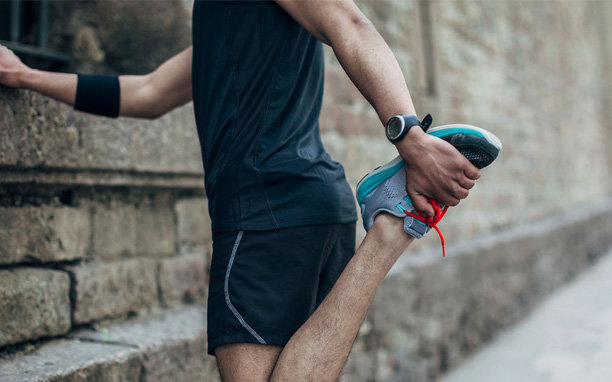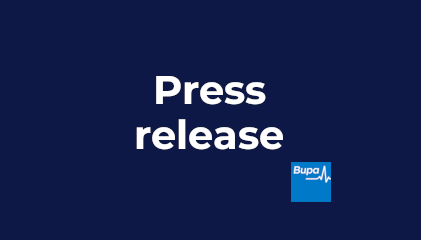- Newfound enthusiasm for exercise sees Brits upping their intake and trying new sports
- Leading to seven million injuries, from sprains and strains to pulled muscles and back injuries – with men twice as likely to injure themselves than women
- But only one in four (25%) has sought out medical help despite phone and video consultations being available to support people from home

A study from Bupa UK has revealed that two in three UK adults (61%) have been taking advantage of time in lockdown to exercise, with 28 per cent having upped their usual intake and one in five (17%) inspired to try something new.
The most popular types of exercise include walking, gardening, jogging, cycling, using home gym equipment or joining in with online classes*.
Two in three Brits (66%) credit regular exercise with maintaining their mental health while in lockdown while one in three (31%) are aiming to shed extra pounds.
But 7.2 million1 eager exercisers have potentially been hurt or injured during lockdown, with men twice as likely as women to injure themselves.
Some exercises are proving more perilous than others, with those doing online classes or PT sessions, weight training, and using home gym equipment most likely to report injury3.
The most common injuries include pulled muscles (36%), with a similar number reporting more severe damage to their knees, backs and ankles4 as newfound enthusiasm takes its toll.
Despite millions of exercisers suffering just one in four (25%) has sought out medical help even though it’s increasingly available remotely, with many consultants and physiotherapists offering phone and video appointments. Instead people have been patching themselves up with painkillers or joint support5, while a further 42 per cent has done ‘nothing’, running the risk of causing a more significant issue.
But with caps on daily exercise recently lifted by the government, and nearly half (45%) of people planning to carry on with their lockdown fitness programmes after social distancing measures are relaxed, Bupa health experts are advising people on how to exercise safely.
Damian McClelland, Clinical Director for Musculoskeletal Services at Bupa UK Insurance commented: “Social distancing may keep us out of gyms and fitness classes for a while longer, so it’s encouraging that so many people have taken on exercise routines from home. But while exercise is enormously important for both our physical and mental health, new regimes and workouts should be taken on with caution to avoid “home gymjuries”.
Many people have been understandably reluctant to go out to access healthcare. However, there’s no need to put up with strains and pains during lockdown. If you need to speak to a physiotherapist or a consultant, appointments are happening by phone or video to allow quicker access to advice and treatment.
“For those trying out something new, or simply increasing their activity during lockdown, make sure to build in 15 minutes to stretch out and cool down muscles after a workout, take rest days in-between exercise and make sure that you’re getting enough sleep – as these are important for warding off exercise-induced injury and strain. Try to gather as much information and guidance on technique as possible before you embark on a new workout, and if you do suffer an injury, seeking medical help remains essential.
“Bupa's Direct Access MSK service allows customers to bypass the GP and be referred directly to a specialist. Bupa has also developed a Coronavirus Information Hub and exercise tips to prevent injury with advice for everyone on how to stay healthy and well at home."
Bupa UK has expanded the range of health services that customers can access from home. Services include telephone and video consultations with nurses, GPs and consultants, as well as specialist help for physiotherapy and mental health, right through to chemotherapy at home for cancer patients.
*Top 7 most popular lockdown exercises
Walking (51%)
Gardening (32%)
Joining in with classes or PT sessions online or via app (30%)
Using home gym equipment such as bike or treadmill (14%)
Running (13%)
Cycling (10%)
Weight training (8%)
Top 5 most common injuries
Pulled muscles (36%)
Knee injuries (31%)
Back injuries (26%)
Ankle injuries (26%)
Neck injuries (25%)
Notes to editor
Research conducted among 2,003 UK adults by Opinium Research between 24-27 April 2020.
- Opinium estimates the UK adult population is 52,383,000. According to Bupa’s commissioned research 14% of adults have been hurt or injured whilst exercising during lockdown. 14% x 52,079,000 = 7,218,027.
- 15% of men have been injured compared to just 7% of women.
- Of those who reported injury as a result of exercise during lockdown 30% had been doing classes / PT sessions online or via apps, 28% had been weight training and 22% have used home gym equipment
- Of those who have been injured during lockdown 31% have hurt their knee, 26% have hurt their back and 26% have hurt their ankles.
- 26% of injured people ought something to manage the injury (e.g. painkillers/ joint support)
Bupa Direct Access is a self-referral service which gives health insurance customers access to musculoskeletal specialists, without needing a GP referral.
Specialist Patient Support is available for Bupa customers awaiting surgery for an MSK condition. Customers can access case management support with structured pre-habilitation as well as pain management advice and online resources to improve post-operative outcomes. Clinicians can also help manage pain through lifestyle advice and education via a series of online resources.
About Bupa
Bupa's purpose is helping people live longer, healthier, happier lives and making a better world.
We are an international healthcare company serving over 31 million customers worldwide. With no shareholders, we reinvest profits into providing more and better healthcare for the benefit of current and future customers.
We directly employ around 85,000 people, principally in the UK, Australia, Spain, Chile, Poland, New Zealand, Hong Kong SAR, Turkey, Brazil, Mexico, the US, Middle East and Ireland. We also have associate businesses in Saudi Arabia and India.



